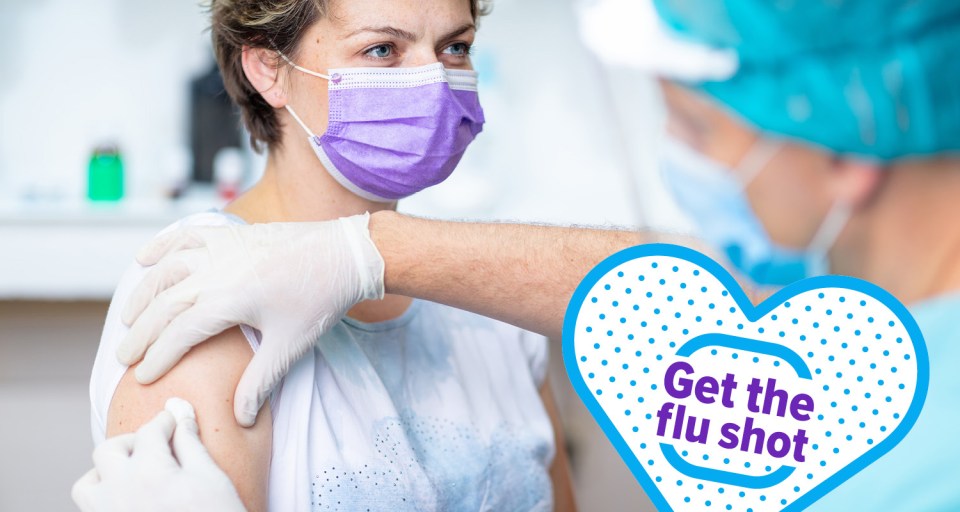COVID-19 continues to be a major national health concern, and influenza season is fast approaching. Unfortunately, the flu won’t take a year off just because there’s a pandemic. Mary Ellen Hatch, vice president of nursing operations at Encompass Health, has answered a few pressing questions about why it’s more important than ever to get a flu shot this year.
Is it possible to have COVID-19 and the flu at the same time?
It is possible to test positive for flu (as well as other respiratory pathogens) and the virus that causes COVID-19 at the same time. It would be very serious to have both. Luckily, we have an effective vaccine for the flu, and vaccination production has increased this year due to COVID-19. Wearing a face mask, social distancing and practicing disciplined hand washing can lower your risk of contracting either illness.
Are you more likely to contract COVID-19 if you get the flu?
At this early time in the 2020-2021 flu season, no studies have been published indicating that patients with the flu are at a greater risk of getting COVID-19. It’s important to remember, however, that if your body is fighting a virus, your immune system is compromised. A compromised immune system means you may be at greater risk of catching COVID-19 and even having a more serious case. When experiencing any of the symptoms of influenza or COVID-19, you should isolate yourself from others and seek medical attention to determine the diagnosis and best course of treatment. The two illnesses are not treated in the same way.
Because the symptoms of COVID-19 and the flu are so similar, what’s the point of getting the flu vaccine?
Reducing the chances of getting the flu will keep you healthier this flu season, reduce the severity of illness if you do get the flu and prevent you from spreading the flu to people who may be recovering from COVID-19.
Can the flu vaccine give you the flu?
No matter what urban myth you have read, you cannot get the flu from the vaccine. Since 1942, the vaccine has been made from deactivated portions of the influenza virus. There are different processes to create the vaccine, but in all cases, a purification takes place to remove the possibility of the vaccine causing influenza. Additionally, the influenza virus is transmitted via droplets being inhaled through the mouth or nose. The injection is going into a muscle, not your mouth or nose.
What about people who get the flu vaccine and still get sick with flu symptoms?
While you will not get the flu, you may experience some minor symptoms such as soreness, redness or swelling where the shot was given. Fever, headache, nausea and muscle aches are also possible. This is your body’s response to the vaccine, building up your ability to fight the virus it may be exposed to later. Most clinicians recommend taking something mild for fever and aches, drinking plenty of water and using the arm where the injection was given in order to speed up relief.
The flu vaccine doesn’t prevent against all strains of the flu. Does it even help?
Each year, the World Health Organization makes decisions regarding the seasonal influenza vaccine’s components based on the activity of strains of influenza being experienced. This year’s quadrivalent vaccine protects against two type A and two type B forms of influenza. These forms represent the most commonly seen forms of influenza at present. Studies have shown a reduction in severity of illness in patients who had been vaccinated but became ill with influenza anyway. The point is to prevent the illness altogether or reduce the severity of the course of illness if you get the flu. The additional benefit is that by getting the vaccine and not getting the flu, you could prevent spreading the flu to your friends, family, colleagues and community.
The content of this site is for informational purposes only and should not be taken as professional medical advice. Always seek the advice of your physician or other qualified healthcare provider with any questions you may have regarding any medical conditions or treatments.



